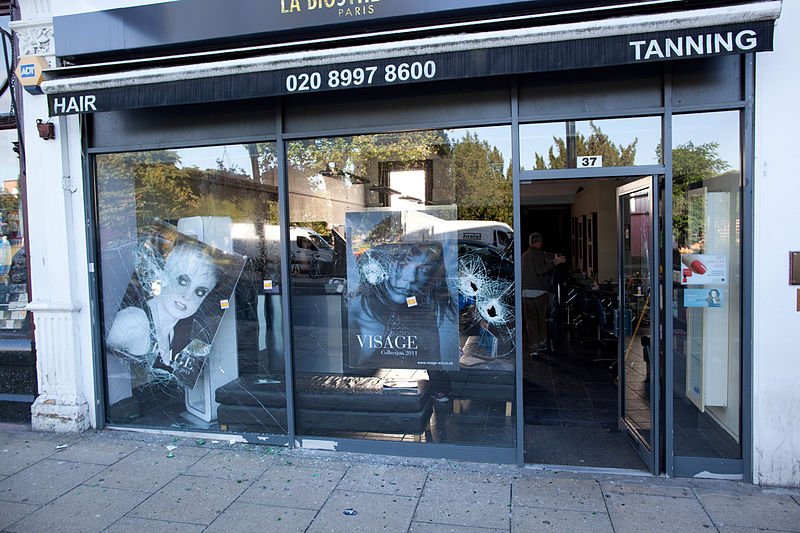People currently living under tyrants in the Middle East want political freedom and empowerment. But in free countries in the West, we want designer stuff. What we wouldn’t trade for it. We’re citizens acting as if we’re merely consumers. From David Wallace-Wells’ smart interview with Martin Amis in New York, a section about the London riots of 2011:
“Were you in London for the riots?
I wasn’t. As I recall, it was, as these things usually are, set off by a bit of heavy-handed policing. It’s interesting that there’s such a contrast between the police in America and there, in how they’re viewed by the working class, or whatever you want to call them—the proletariat, the many. In America, the policeman is a working-class hero. In England, the policeman is a working-class traitor. Lionel propounds this view himself—the police undertake to protect the rich man’s shilling. As if everyone’s raring to have a redistribution of wealth. That’s why there’s such violent names for the police in criminal England—they call them not only the filth, the filth, but also the puss. They’re the lowest of the low. When policemen go to prison in England, they have as bad a time as a pedophile.
The police in America are, to my senses, quite fascistic—you know, immediate end to all humor, end of all human contact; it’s a real assertion of authority in a way that’s very rare in England. In England, police are, softly softly, “Now, sir, come on, sir.” It’s a humoring voice, not an authoritarian one. I don’t understand the sparking incident. But, then, as the phrase is, it’s all off, then. When a riot starts, it’s all off—meaning, the law suspended. It’s also interesting they used social networking to get people around to certain malls where the police presence was small.
Also that they were gravitating towards malls at all.
Yeah. It was very sort of un-left-wing, in the sense that they all flooded into these sports-equipment shops and tried on all these trainers. A rioter doesn’t usually try things on. Or a looter—it was looting, really, rather than rioting.
But, I mean, what conclusions are people trying to draw from that? It’s just the sort of thing that happens every now and then. Very hard to see any kind of social protest in it. It was opportunistic, and cynical, I think. And I was horrified to learn some of the sentences that were being handed down, for people with no record, first-time offenders, deterrent sentences, exemplary sentences. So, you know, incoherent social spasm rather than anything one could draw conclusions from.
But I guess an expression of class frustration, too.
It’s not class anymore. It’s money. And for very good reason. Money is a much more fluid medium than class, and much more measurable, too, than class. It was a protest, if it was that, to any extent, against privation. It is the sort of society where—it’s not very rational—people look at fame and feel deprived if they haven’t got it, feeling that this is a basic, almost a human right, a civil right.”
••••••••••
Amis interviews Norman Mailer, 1991:

